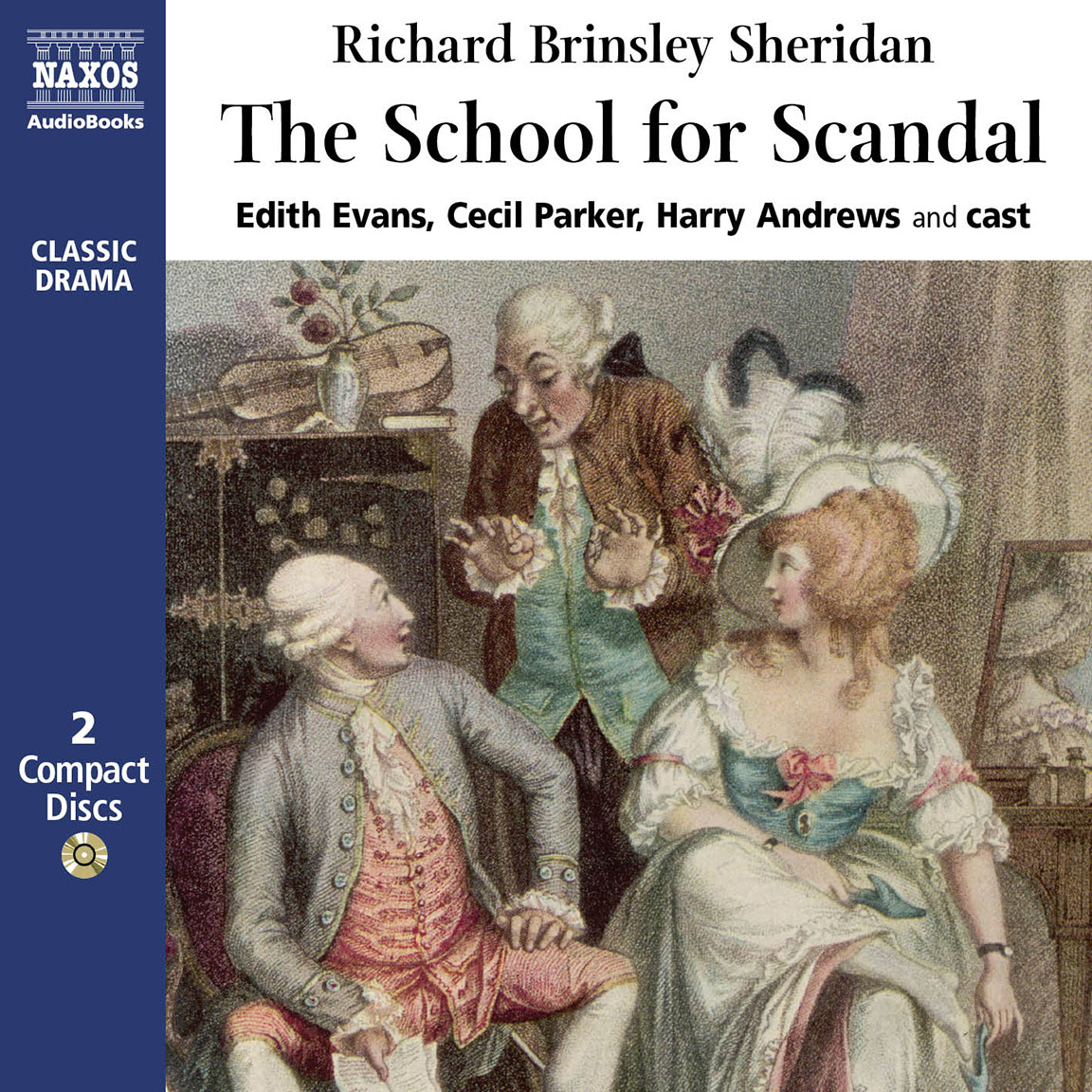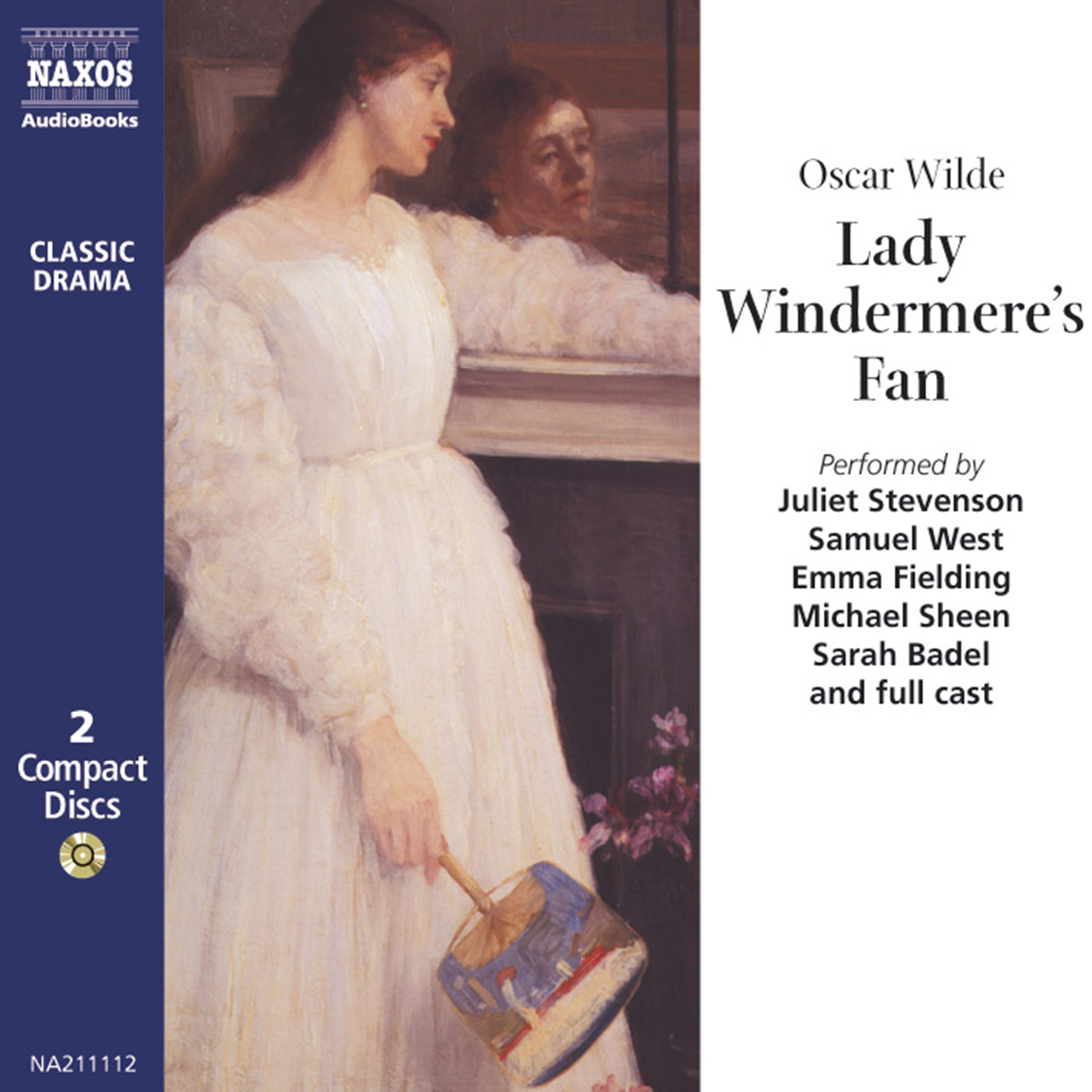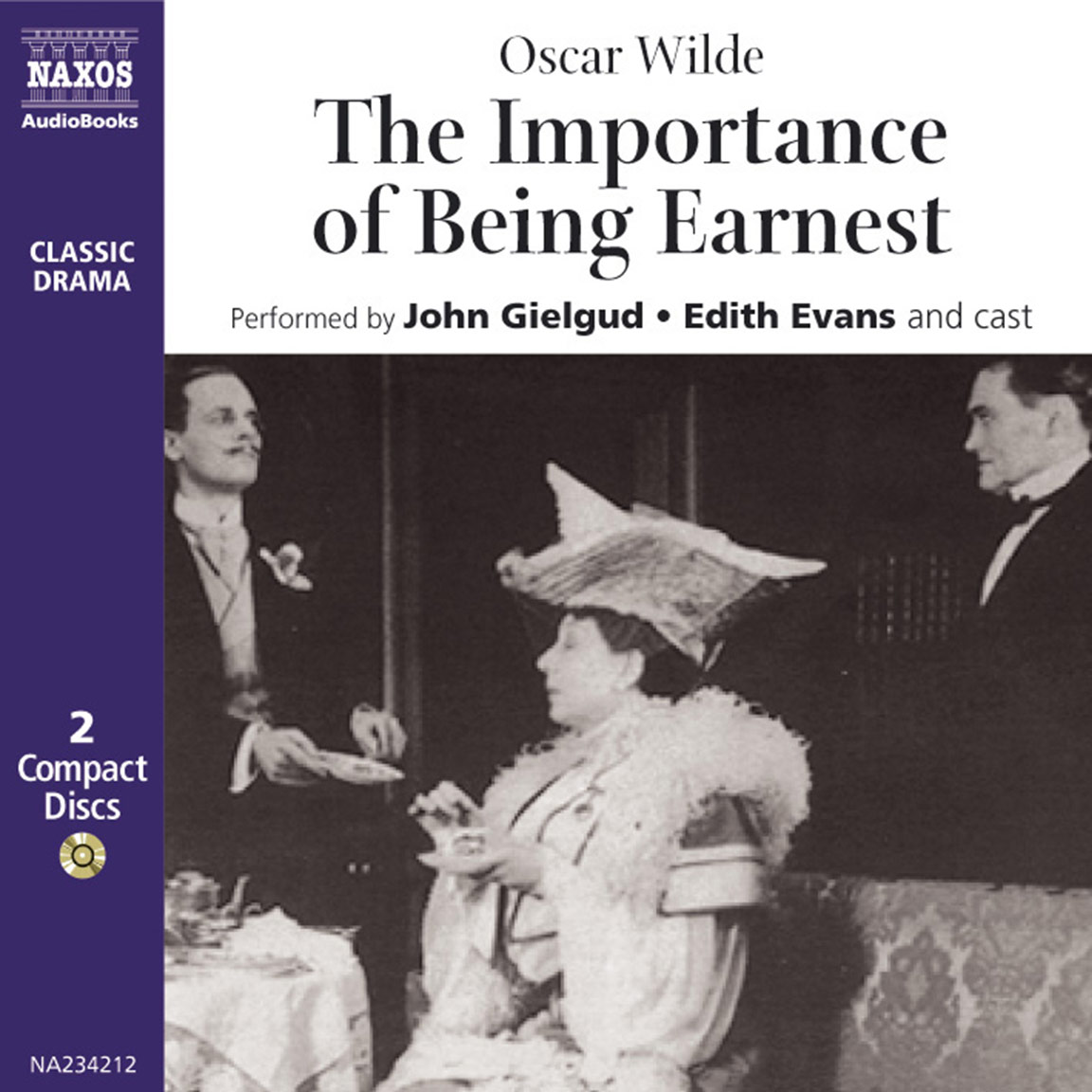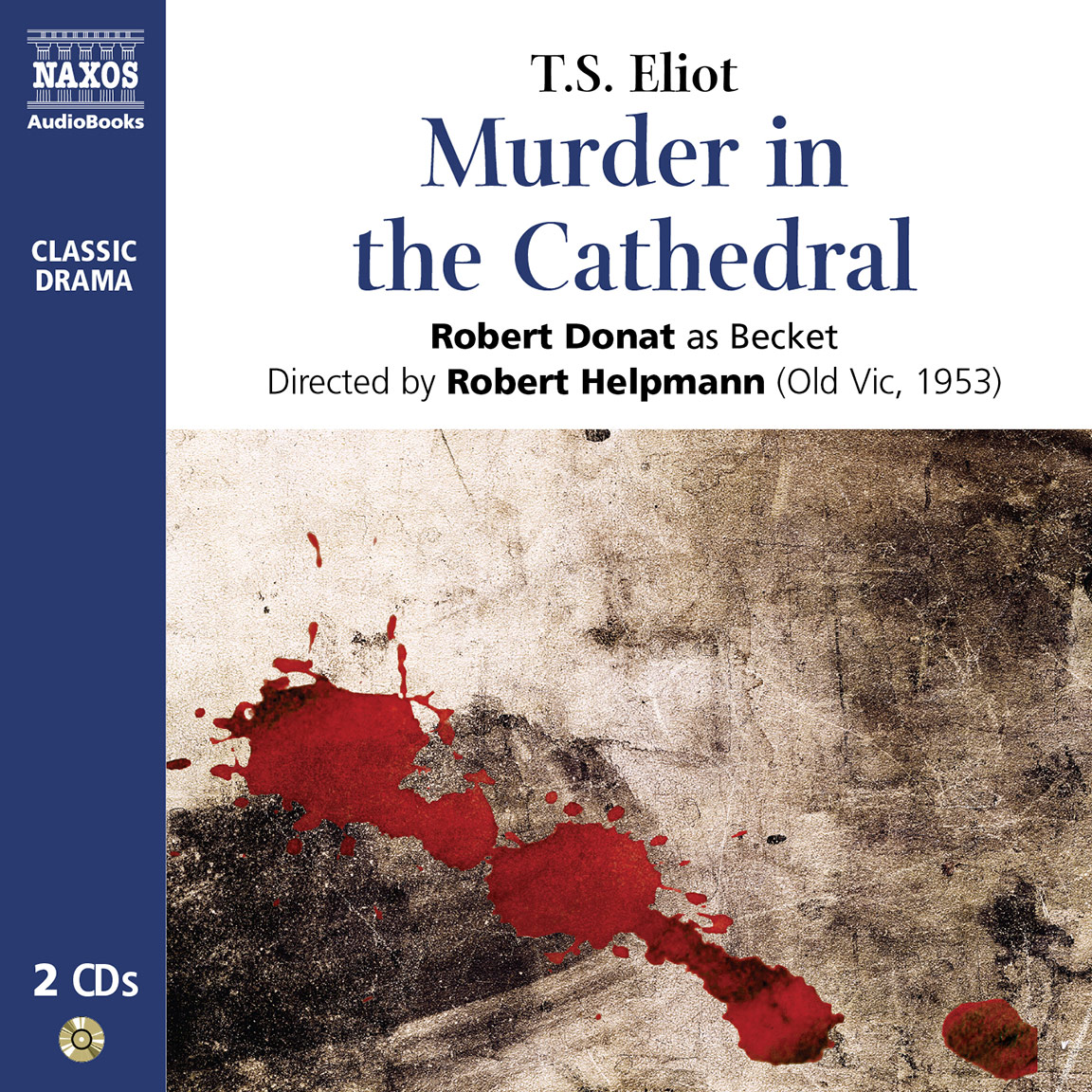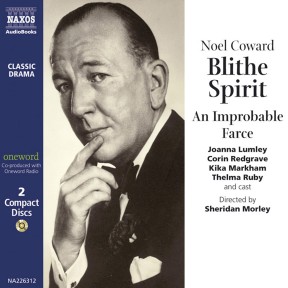
Audio Sample
Noel Coward
Blithe Spirit
Directed by Sheridan Morley
Performed by Corin Redgrave, Kika Markham, Joanna Lumley & Thelma Ruby
unabridged
When novelist Charles Condomine invites a medium into his house in order to learn about the occult for his new book, the last thing he or his second wife dream is that the séance will bring back his first wife, Elvira, who wants Charles all to herself! Things are further complicated by the fact that only Charles can see her, which results in some hilarious exchanges and misunderstandings. Elvira’s plots to get him to ‘the other side’ do not go to plan however, and instead of Charles dying in her contrived ‘accident’ his new wife does! Many consider this to be one of Coward’s best and most unusual farces.
-
2 CDs
Running Time: 2 h 11 m
More product details
ISBN: 978-962-634-263-3 Digital ISBN: 978-962-954-682-3 Cat. no.: NA226312 Download size: 32 MB Produced by: Nicolas Soames Directed by: Sheridan Morley Edited by: Mike Etherden BISAC: DRA003000 Released: July 2004 -
Listen to this title at Audible.com↗Buy on CD at Downpour.com↗Listen to this title at the Naxos Spoken Word Library↗
Due to copyright, this title is not currently available in your region.
You May Also Enjoy
Cast
- Colin Redgrave
- Charles Condomine
- Kika Markham
- Ruth Condomine
- Joanna Lumley
- Elvira Madame
- Thelma Ruby
- Arcati
- David Timson
- Dr Bradman
- Abigail Francis
- Mrs Bradman
- Cathy Sara
- Maid
Booklet Notes
Blithe Spirit is the most commercially successful, long-running and frequently revived of all Noël Coward’s sixty plays, but it is the one that nearly didn’t get written at all. At the outbreak of World War Two, when he and the century were at the very end of their thirties, Noël had taken a curious decision not to write anything new for the duration. Twenty months later, although already exhausted from long and arduous troop concert tours, he began to realise the pointlessness of abandoning his craft as a dramatist, and over five days during a brief Easter ‘holiday’ in 1941 at Portmeirion in North Wales, he constructed the ‘improbable farce’ that is Blithe Spirit. ‘I shall always be grateful,’ Noël later wrote, ‘for the almost psychic gift that allowed me to write this script so fast. It was not meticulously constructed in advance, and only one day elapsed between its original conception and the moment I sat down to write it; six weeks later it was produced, and it ran for nearly five years in the West End.’ For more than thirty years, Blithe Spirit was to remain the longest-running comedy in the history of British theatre; Noël himself directed the first cast, in which Cecil Parker played Charles alongside a then-unknown Margaret Rutherford as Arcati and Kay Hammond (who later also went into the David Lean film version with Rutherford and Rex Harrison) as Elvira. Reviews were generally ecstatic, though Graham Greene (writing in the Spectator) called it ‘a weary exhibition of bad taste’; Noël’s revenge was swift and sure – in a 1946 play called Peace In Our Time he suggested that, had Britain ever had to suffer a Nazi occupation in 1940, the first to collaborate would have been ‘left-wing journalists and novelists’. But Blithe Spirit still lies outside the mainstream of Noël’s earlier stage work, in that we are not here faced (as in Private Lives and Hay Fever and Present Laughter) with a closed, self-regarding and self-perpetuating group of insiders ranged and raging against the supposedly ‘real’ people who would nowadays be called ‘civilians’. Instead, the abrupt ending of the 1930s, in which he had been the playboy of the West End world, jack of all its entertainment trades and master of most, together with the coming of the war itself, and then two years cut off from the typewriter, seem to have changed both Noël’s style as a dramatist and his sense of development; there is more plot in Blithe Spirit than in almost any of his earlier stage comedies, and more careful development of character.
If, moreover, it should seem odd that a farce about death, featuring at least two ghosts, should have so triumphed when London was under nightly bombardment and audiences were losing their loved ones on battlefields all over the world, consider this: it is, I believe, precisely because Blithe Spirit makes fun of death, suggesting that you can return from it almost at will, that World War Two theatregoers all over the country found it so curiously and constantly reassuring.
After Blithe Spirit, all Noël Coward comedies were to exist in their own right, without back-references to the poor little rich girls and the Mayfair or West End high society which had so characterised his earlier work for and with Gertrude Lawrence. She had in fact settled in America a year or two earlier, and was never to come home to him again. This could be one other reason why what one thinks of as the last ‘Gertie’ role (even though she only ever played it on radio and US army tours) was in fact written as a ghost. Noël and Gertie, who had been together as child actors since 1912, were now separated by the war, by the Atlantic and by her marriage to an American theatre manager, Richard Aldrich.
In that offstage sense, Blithe Spirit marks the borderline between the pre-war and the post-war Noël, and it has lived in almost constant revival ever since. Apart from the film and television versions, major revivals have included one at the National Theatre directed by Harold Pinter with Maria Aitken and Richard Johnson, and then a long-running West End revival of 1985 with the late Simon Cadell and, as Elvira, Joanna Lumley who plays the part again on this recording. Most recently, it was revived at Chichester by Twiggy and Dora Bryan.
Blithe Spirit has also been seen as a Broadway musical retitled High Spirits, which starred Beatrice Lillie in her farewell appearance, and had a score by Hugh Martin and Timothy Gray which Noël directed and for which he also wrote (uncredited) some of his very last lyrics.
This is the first complete recording made purely for audiotape and compact disc. For the scene changes, we have used some vintage Naxos recordings of Noël singing his own early songs.
Notes by Sheridan Morley
